Digital transformation: a journey, not a destination
)
Technologies such as AI and robotics continue to promise an exciting future for manufacturers. But the simple truth for most firms, is that before they can take advantage of such potential there are a host of digital capabilities that first need to be mastered. Otherwise, they run the risk of investing in technology for its own sake – then fail to generate the expected value due to limitations in the skills and infrastructure available.
Low hanging fruit
The good news is that digital technologies present an abundance of opportunities. Particularly when the emphasis is placed on removing paper from the shop floor, and collecting/analysing data to drive continuous improvement. What’s more, there is considerable ‘low hanging fruit’ to pick. A fact that bodes well for UK manufacturing, which continues to account for 64% of all UK business R&D, and provides 2.5 million jobs.
The key question however is simply “where to start?” The market is full of stories promoting the value of AI, robotics, and automation. Yet arguably cloud computing and analytics can generate more tangible returns by supporting real-time decision making. These tools, such as the Manufacturing Execution System from MESTEC, provide visibility into day-to-day operations, and enable managers to address problems as they occur – rather than responding to their impact after-the-fact. Equally, they also enable firms to quickly re-prioritise resources to address any constraints (machine breakdown, lack of materials etc.), and determine what any change will mean to existing priorities.
Cultural issues
The right technology can therefore boost productivity, and other key factors such as quality control and operational efficiency. So why the general lack of adoption? Ask that question a few years ago, and responses would typically call out a range of technical and infrastructure challenges. Now though, as technology matures and becomes easier to deploy, the emphasis is shifting toward cultural issues and internal capabilities.
It's here that businesses have to perform an honest assessment of the skills and capabilities they have in-house, as well as their readiness to make use of technology. To help in this regard, manufacturers can call on the Smart Industry Readiness Index (SIRI). The overarching purpose of this initiative is to help firms start and scale their digital transformation roadmaps:
· The process begins with identifying key business objectives and desired outcomes
· The SIRI algorithm is then applied to prioritise where a firm should focus its efforts
· The index also offers benchmarking data on the rate of progress achieved by different industries
SIRI also helps define both a future state vision, and areas where firms are lagging behind. This last point is interesting, as it highlights gaps where immediate gains can be achieved, and where proven technologies already exist.
Final thoughts
Digital transformation should be viewed more as a journey than a destination. But as UK manufacturers accelerate their plans, two key points should always underpin their thinking. The first is that technology remains way ahead of adoption. The smart money should therefore go on using what’s already available, rather than the latest innovations. Hence the importance of focusing on cost and performance targets before firms get left behind. The second point is that while timely data supports better decisions, the process is still reliant on skilled people interpreting the findings – and to pose the right questions. The people dimension should never be underestimated.




